Our commitment to social impact is one of our core values. It continues to guide us as we grow and evolve.
1
Social Impact
A Few Words from LP Managing Partner Jeffery Hoffenberg

Dear Friends,
2024 was a year of celebration and calibration for LP. As we celebrated our 25th anniversary, we took stock of how far we’ve come, where we are now, and where we are going. We are immensely proud that our commitment to supporting and empowering community organizations has never wavered and it is stronger than ever.
Featured within this Report are our 2024 grant partners—Catholic Charities Human Services Programs, Cristo Rey Jesuit High School’s Corporate Work Study Program, the Greater Chicago Food Depository’s Workforce Development Programs, and Jewish United Fund—not based on any beliefs they hold, but because of the profound impact they have on the community and their commitment to empowering others to create their own success story. This year’s Social Impact Report shares the powerful impact of these organizations directly from the individuals and families most closely involved with them.
We’re also incredibly proud of the pro bono legal services LP provides to various individuals and organizations, including Rebuild Foundation and immigrants seeking asylum in the U.S. We are also happy to support LP team members who champion their causes independently through significant contributions of time or leadership positions in charitable and civic organizations.
We do not share this information for accolades. We consider corporate social responsibility to be a baseline expectation, and we share this information to amplify the exceptional work these organizations are doing. Our corporate social responsibility endeavors would not be possible without you, and we are grateful for your continued support and partnership.
On behalf of everyone at LP, thank you.
Jeffery Hoffenberg

2
Grant Programs
The bulk of LP’s charitable commitments are dedicated to four organizations with a strong multiplier effect. These are their stories.
Grant partner since 2022.
Catholic Charities Human Services Programs
LP’s grant to Catholic Charities supports migrant residents, provides food assistance, and supports survivors of domestic violence and their children by providing holistic care, housing, and resources.
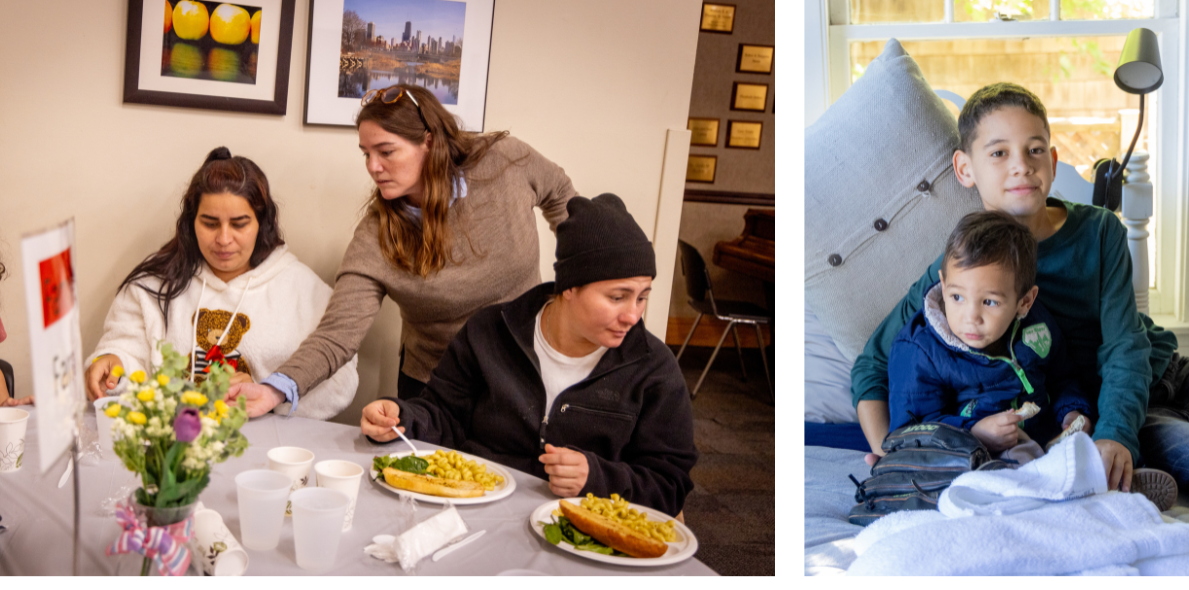
A Q&A with Colleen Kennedy, Vice President – Institutional Advancement at Catholic Charities
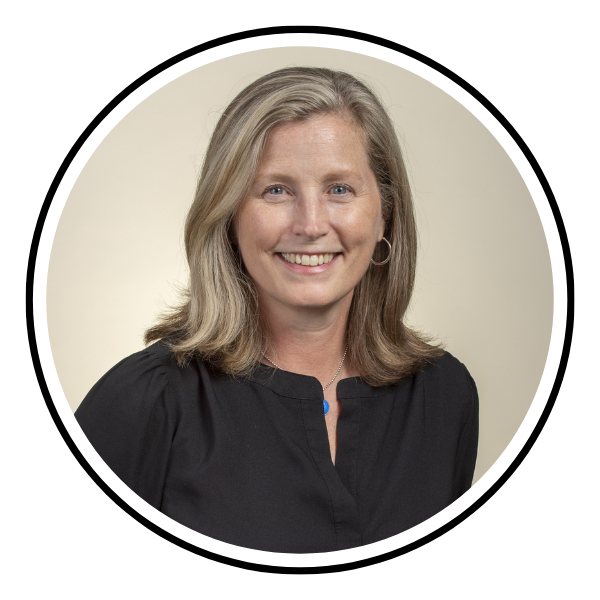
“I see the Catholic Church as the largest human service organization in the world, and I’m inspired by the immediacy
and urgency of what Catholic Charities does…”
What are the core services you provide?
Catholic Charities is the largest human services provider in the Chicagoland area. The organization provides services that address the growing food insecurity in our region, new arrivals from Venezuela and other countries who are scared, hungry, and in search of a more stable life, and opportunities for mothers and children who have been impacted by domestic violence.
Can you tell us about some of your most impactful programs?
We provide human services support in several ways, including the following impactful programs: Sister Joyce Dura, O.S.F. Supper Program, House of the Good Shepherd, and Migrant Response Program.
Sister Joyce Dura, O.S.F. Supper Program
Through Catholic Charities’ Sister Joyce Dura, O.S.F. Supper Program individuals and families gather for a warm meal and community support. Every weekday at Catholic Charities’ downtown location, anywhere from 130 to 250 people enjoy a nutritious, hot meal and dozens more are offered to-go meals through the Dura Supper Program.
These suppers are a primary source of connection and community for those who attend, with many sitting at the same table and engaging with the same group over many years. In recent years, the number of attendees has increased with newly arrived migrant families joining, as well. The suppers also provide access to other Catholic Charities services. Over the past year, Catholic Charities clothing rooms, Diaper Depot, and requests for necessities have seen a significant increase in visits and demand. In response to this need, Catholic Charities’ downtown location opened a clothing room in the fall of 2023. Many of Catholic Charities’ additional services, such as the clothing room, are offered to people who learn about them by attending a communal meal.
House of the Good Shepherd
Catholic Charities’ House of the Good Shepherd (HGS) continues its 160+ year legacy of successful transitional housing programming, providing survivors with the time and resources to prepare for independent, safe living outside its walls. Through HGS, survivors and their families can access legal assistance, on-site childcare, adult learning, financial literacy classes, and counseling services.
In addition to providing transitional housing and services to survivors and families from across Chicago, HGS expanded its housing occupancy and domestic violence support programming in response to the current migrant crisis. Beginning in February 2024, the HGS campus welcomed an additional 12 migrant women and their school-aged children who were previously housed in the City of Chicago new arrival shelters and experiencing domestic violence. These migrant families resided in a renovated building on the HGS campus for nine months and received critical support, case management, counseling, and life skills to resettle and begin new lives in the Chicago area.
HGS staff and service providers are bilingual and trained to serve the unique experiences the newly arrived women and their families face. While serving this new population, HGS will continue its legacy of providing transitional housing and services to survivors and families from across Chicago who may be a part of a marginalized population, including people of color, children and youth, victims with an undocumented immigration status, Second Language Learners, and unhoused families.
Migrant Response Program
Through Catholic Charities’ Migrant Response Program, Catholic Charities connects new arrivals from the southern border with safe, long-term housing and provides resources and materials to meet immediate needs. We fielded a dedicated team of 130+ bilingual staff working on the front lines each day, serving with courageous and faith-filled compassion, hope, and joy. Together with Catholic Charities’ parish partners and philanthropic support from organizations like LP, CCAC also distributed 9,000 Ventra cards and 7,500 gift cards to families across the city. Catholic Charities continues to serve thousands through anchor programs at Catholic Charities locations across Lake and Cook counties, including providing fresh food through our pantries, welcoming guests to our community suppers, and connecting them to other services.
What impact have you seen CCAC’s programs have on individuals, families, and the community?
There are many examples of CCAC’s programs’ profound impact on individual participants and the community. One is Calvin, who has no permanent home address and has been a mainstay of the CCAC Sister Joyce Dura, O.S.F. Supper Program for more than 20 years. Calvin extends love and acceptance to others who come through CCAC’s doors for the nightly suppers. Once a week CCAC offers guests the opportunity to participate in its After Supper Visions program. Launched in 2002, the initiative invites supper guests to grow their photography skills. Some artists use the cameras on their phones. Others use the digital or disposable cameras they are offered. Participants present their photographic artwork at an annual exhibition and sale, which provides them with broader exposure and income. Calvin has been involved in After Supper Visions since the beginning. “I don’t just take pictures. God is working through me, putting images and ideas in front of me,” he says. “It’s a way for me to communicate, to work through some of the trauma I have witnessed and experienced.”
What are your 2025 goals and priorities?
Our goal in FY25 is to raise $35 million to carry out our urgent mission across Cook and Lake Counties in three Impact Areas: (i) immediate access and basic needs; (ii) mothers and families; and (iii) seniors and housing. This also includes construction of a new Community Center in Summit, Illinois.
What do you find most rewarding about your work with Catholic Charities?
I see the Catholic Church as the largest human service organization in the world, and I’m inspired by the immediacy and urgency of what Catholic Charities does. Here, it is about the impact that we have in direct assistance and accompaniment. It’s extraordinary.
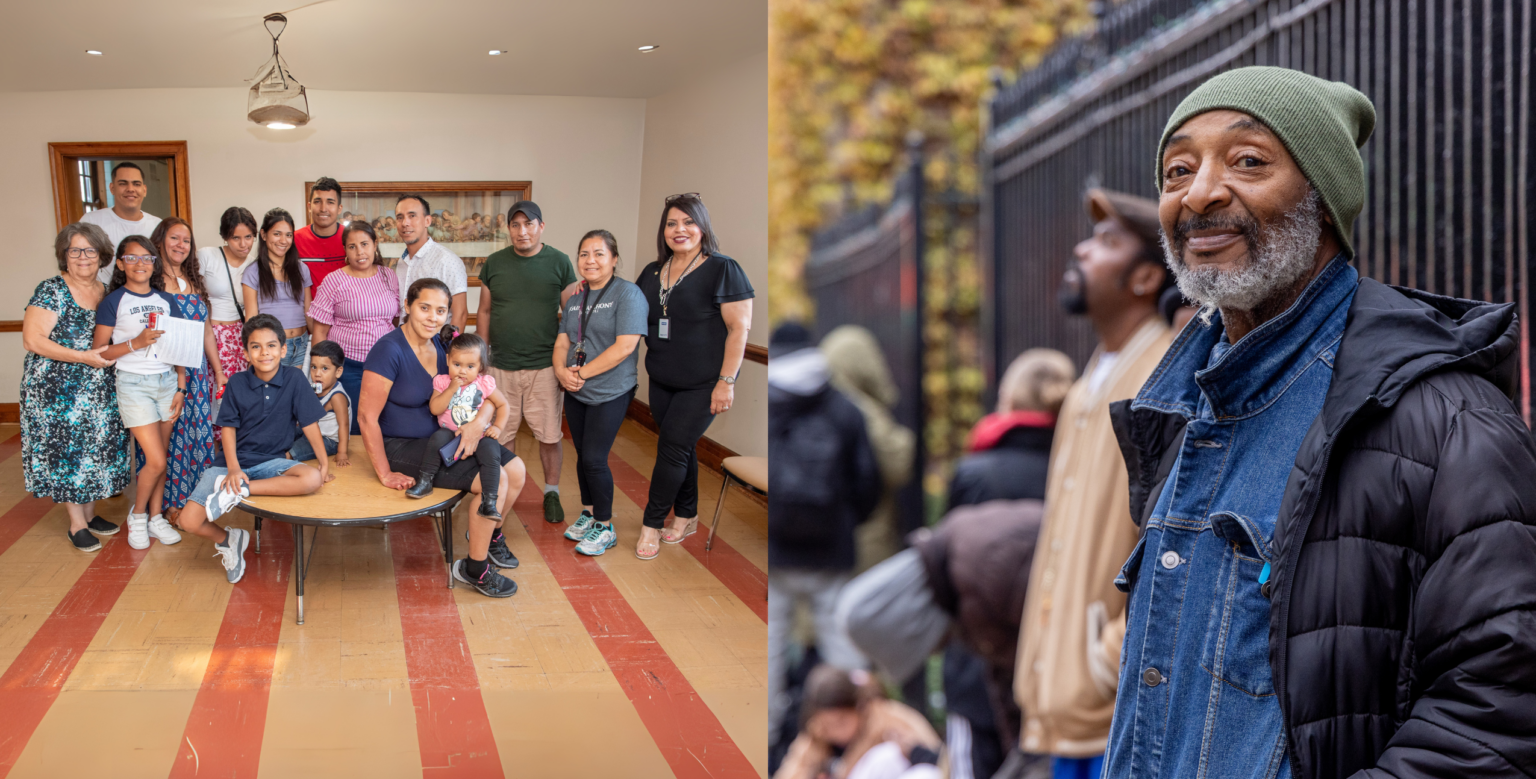
Photos and quotes for this story were provided by Catholic Charities.
Just the Facts
77,589
people were served at Catholic Charities pantries in FY24.
106,922
warm meals served by Catholic 106,922 Charities supper programs in FY24
80%
of HGS residents have gained a stable source 88% of income before leaving the program.
Get in Touch
If you are interested in supporting Catholic Charities or learning more, you can visit their website at catholiccharities.net.
Grant recipient since 2006.
Cristo Rey Jesuit High School’s Corporate Work Study Program
Working with LP, Cristo Rey Jesuit students gain valuable job-readiness skills and work experience along with a tuition scholarship.
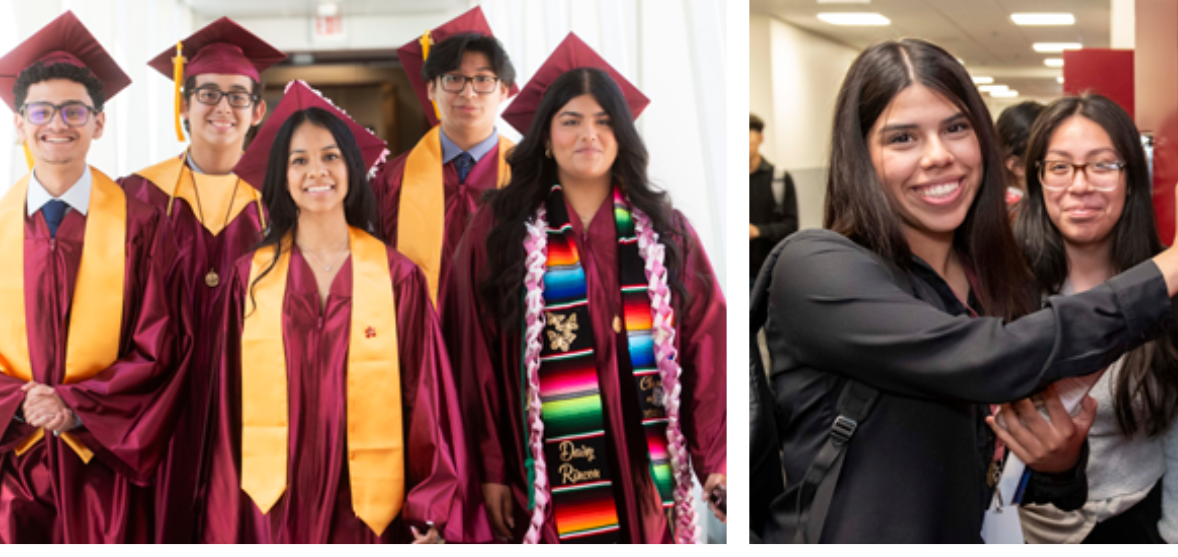
A Q&A with Sahrish Russell, CWSP’s Senior Director,
and Mike Duarte, CWSP’s Senior Training Manager,
CWSP
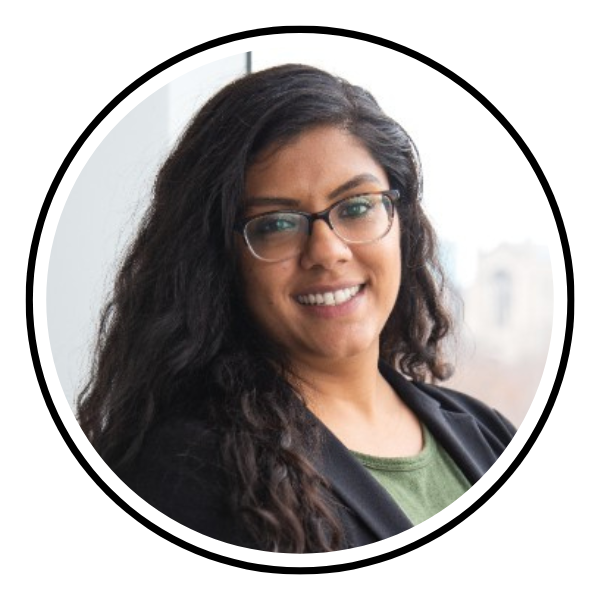
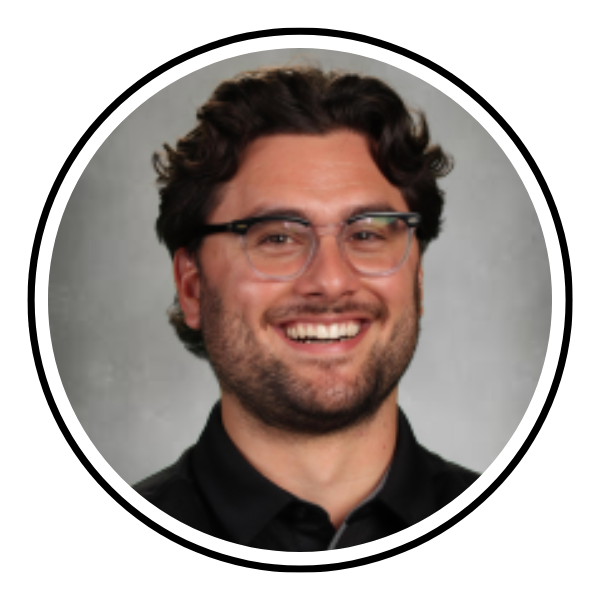
What does CWSP look like in 2024-25 school year?
Sahrish: Our goal is to have as many students as possible working in traditional paid jobs. While we work to get to pre-pandemic levels of student employment, it’s been vital to consider how to prepare students for the demands of this changed workforce. Entry-level job skills and technology advances require more training than ever before. It is important that students are prepared for their jobs so that they add value to our partner companies. Training for all students has increased since the pandemic, with a focus on freshmen and sophomore students.
After a successful pilot in 2023-2024, the full-day training program for a select cohort of students will continue and has expanded in scope. The CWSP works with external partners such as Code Your Dreams, Reach for IT with Rush Medical, Economic Awareness Council, Prismatic Movement, Illinois Science and Technology Coalition Mentor Matching, in addition to in-house instruction in technology and entrepreneurship, and site visits to companies in a variety of fields.
The vast majority of students are in traditional job placements at over 100 companies in Chicagoland. These students bring their talents and unique perspectives to their workplaces, providing real value to companies while simultaneously building their networks and professional acumen well-ahead of their peers.
New this year, 21 junior and senior students are enrolled in a Certified Nursing Assistant (CNA) training program. Partnering with Dominican University, these students are taking college-level courses and hands-on clinical experience to ready them for the state licensure exam. Once certified, these CNAs can work in healthcare and caretaking settings, both as part of the CWSP and on their own.
What do you find most rewarding about your work with CWSP?
Mike: The most rewarding aspect of my work with CWSP is witnessing the students’ growth and confidence as they progress through their training programs and are promoted to jobs. More recently however, watching our Certified Nursing Assistant (CNA) students develop the skills and knowledge needed to excel in the CNA program and, one day, make a positive impact in their communities has been rewarding to see.
Q&A with Faryal Parvez, Human Resources Specialist at LP
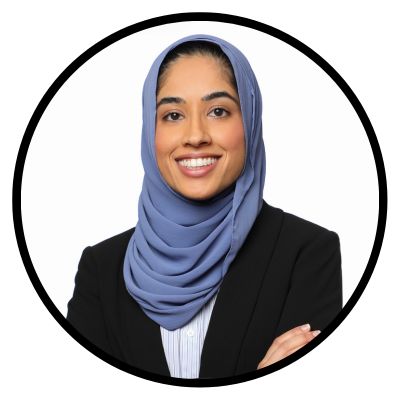
“They have so much to contribute to the firm.”
What do you enjoy most about working with students in the CWSP?
I love the opportunity to mentor and to teach them new things. Knowing that I am making a positive impact adds purpose and meaning to my work.
What do the students in the CWSP bring to the firm?
They bring their positive energy and charismatic personalities to LP. They have a strong work ethic and willingness to learn. They are so young, yet they have so much to contribute to the firm.
What do the students work on while at LP?
The students work on various projects contributing to HR, Records, and Accounting. In addition, we’ll be helping them enhance their resumes and LinkedIn profiles. They are also working on a research project focused on professionalism in the workplace.
How has the CWSP evolved in recent years?
Our relationship has grown stronger over the years as I’ve worked with the CWSP team, Sahrish Russell, Sr. Director and Jose Contreras, Partner Relations Manager. This is Isabella’s third year with us, and I’ve had the chance to get to know her more closely as well. This is a valuable partnership and I hope we can continue working together to help students succeed. Both Isabella and Alejandra are exceptionally bright and I’m excited to see all they will accomplish in the future.
Photos and quotes for this story were provided by Cristo Rey Jesuit High School.
Q&A with Isabella, a senior, and Alejandra, a junior, who are
both working at LP through the CWSP
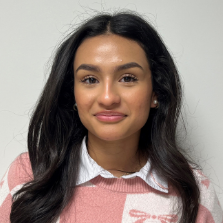

What do you enjoy most about the CWSP?
Isabella: enjoy being able to learn something new every week. My supervisor is always teaching me new things, whether that includes using technology or how to write a professional email. I learn something useful every week that I can use at school or outside of school in my daily life.
Alejandra: I enjoy being an intern and learning more about the company every day. In addition, I get good advice that can help me in the future.
What skills have you gained through the CWSP?
Isabella: Critical thinking. Thanks to my job I was able to gain the skill of thinking outside the box when doing work or tasks around the office.
Alejandra: I have improved my communication skills through CWSP.
What has been the biggest surprise about working at
LP?
Isabella: The biggest surprise about working at LP was that the employees are so open to helping me become a better person, and student. They have welcomed me with open arms and have always pushed me to do my best in and outside the workplace.
Alejandra: The biggest surprise was how much LP cares for their staff and how they are willing to work with each student.
How has the CWSP and working at LP impacted your in-school classes?
Isabella: Working at LP has helped me gain the skill of being more organized in school.
Alejandra: Working at LP and CWSP has had a positive impact. Now I have the confidence to communicate with others, which motivates me to strive to become one of them someday.
Do you have plans for after high school?
Isabella: My plans are to go to college and pursue nursing.
Alejandra: I plan to go straight to college and get started on my career, which I have set my mind on business.
What are your career goals?
Isabella: My goal is to become a NICU nurse. Being a nurse has been something that I am interested in and I want to be able to help others, especially newborn babies.
Alejandra: My career goal at this moment is to work in business finance.
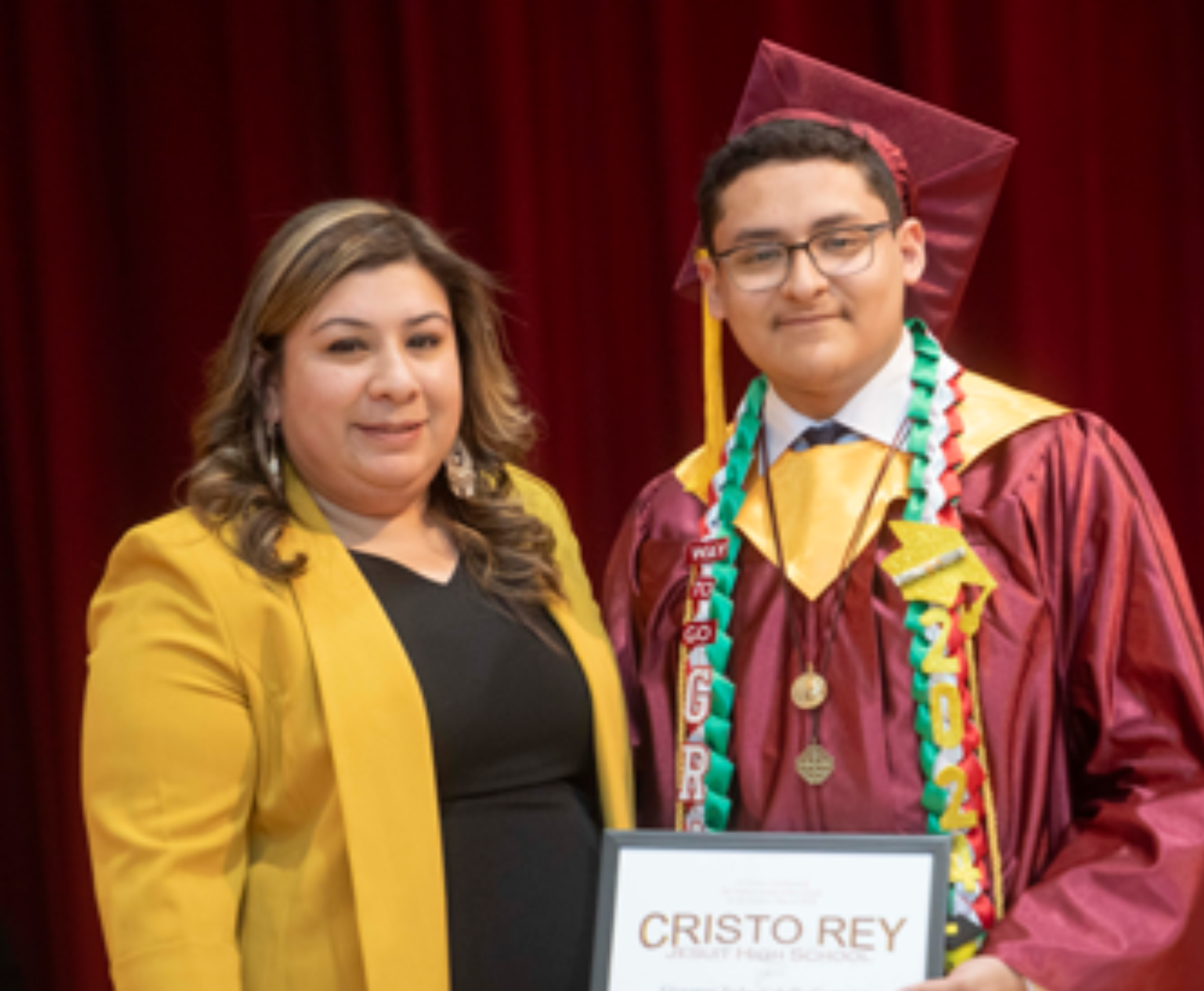
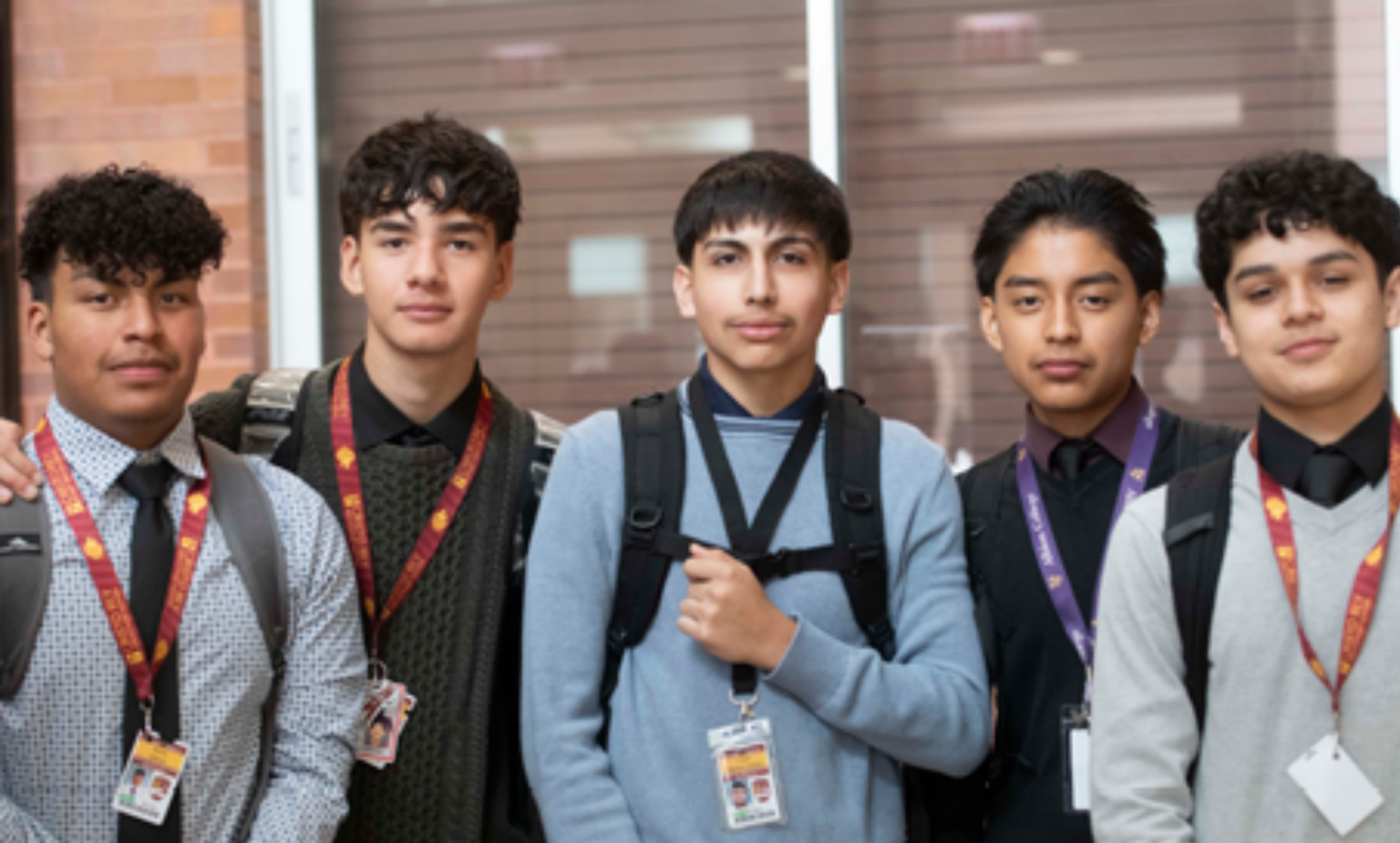
Photos and quotes for this story were provided by Cristo Rey.
Just the Facts
99%
of the Class of 2024 enrolled in a
two- or four-year institution.
91%
of students will be
first generation graduates.
100%
of graduates were accepted to 118 colleges/universities in 27 states.
Get in Touch
If you are interested in hiring Cristo Rey students to work for your organization, you can learn more at cristorey.net/cwsp.
Grant Participant Since 2010.
Greater Chicago Food Depository’s Job Training Programs
Workforce development programs evolve while staying true to the organization’s mission to end hunger. To achieve this mission, the Food Depository works with a network of community-based organizations and individuals to connect neighbors with healthy food, facilitate workforce development, and advance solutions that address the root causes of hunger – poverty, systemic inequity, and structural racism.
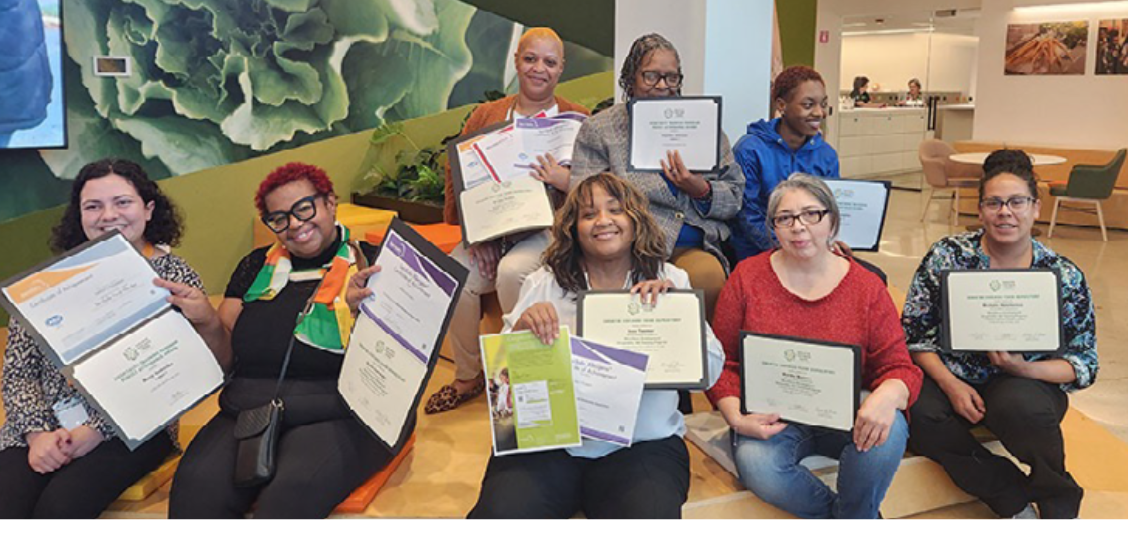
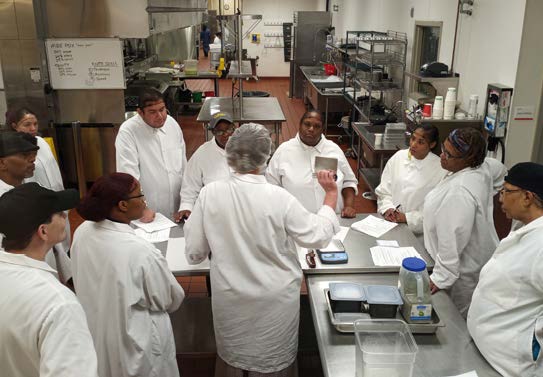
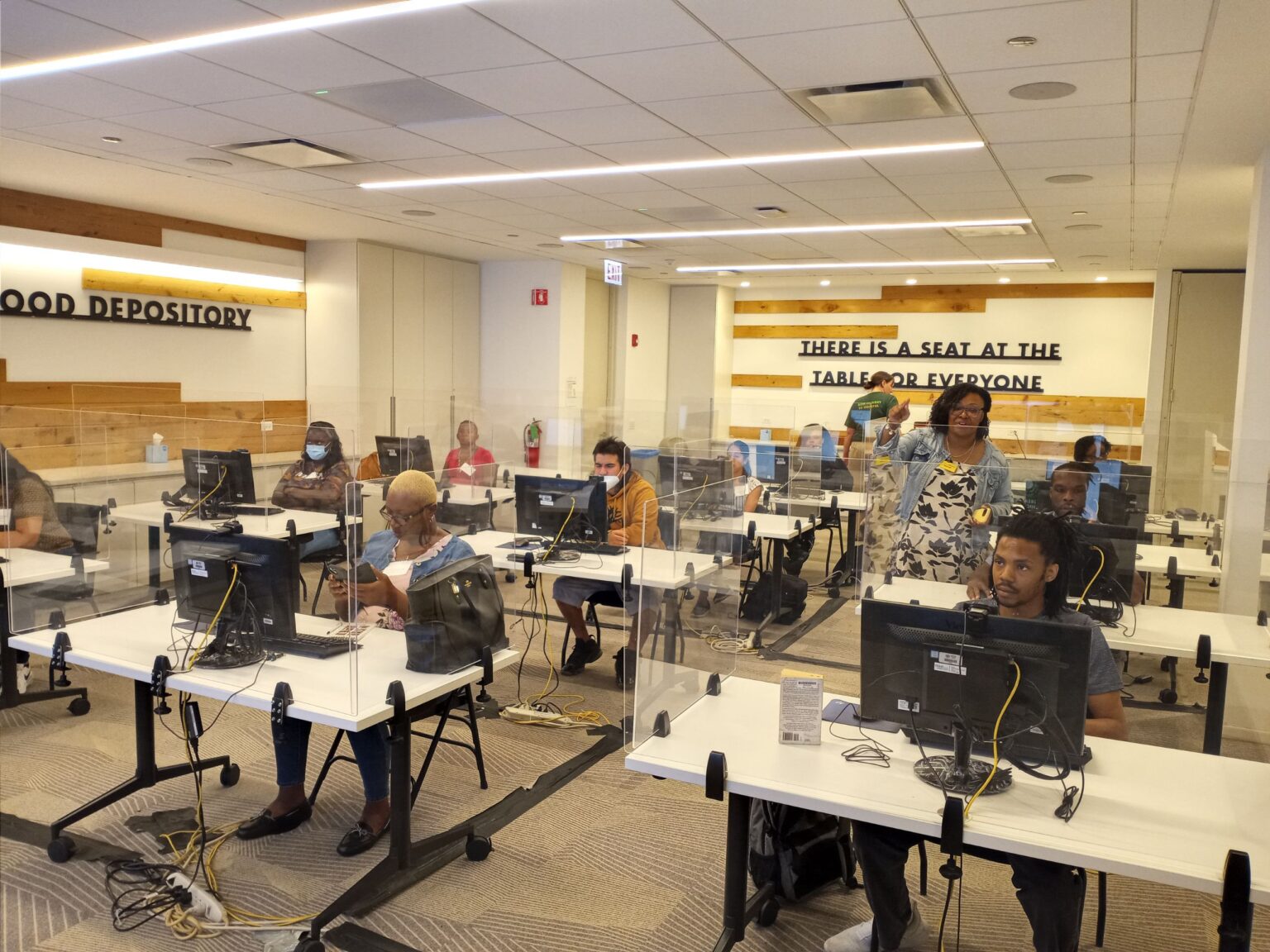
A Q&A with Anne Kearney, Senior Manager of
Workforce Development
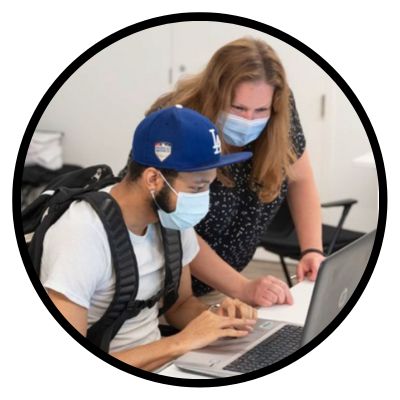
“By nourishing people, we nourish hope.“
What is the current status of your job training programs?
We are upholding our commitments to Hospitality training completers from FY24 in supporting their continued success through career services through their 90 days of supported job search and hopefully 90 days of subsequent employment. Career services include individual employment plan check ins, resource referrals, wrap-around supports, and career coaching.
Q1 of FY25 was spent sunsetting the on-site job readiness training program while also preparing to launch the new version of workforce development at the Food Depository. Workforce Development supports participated in research and evaluation, including attending the Feeding America Good Jobs Summit, Cara Collective Workforce Development Solutions Lab, Executive Club Workforce Development Summitt, and Goodwill Workforce Development Leadership Forum.
We are also transitioning from our research and evaluation stage for the new iteration of workforce development, which will position the Food Depository to deepen its commitment to being an empowering employer, through one-year comprehensive work experiences. These yearlong internships will continue to target our priority populations, including but not limited to system-impacted neighbors, food and/or housing insecure, single parents, English language learners, and those in long-term recovery. This new iteration also allows us to serve those who have been overlooked in the workforce or underrepresented in thriving industries. Examples could include women in supply chain management, people of color in development and grant writing, and 1st generation college graduates navigating into the workplace. These internships will be in partnership in many ways, such as:
- referral partners who have job readiness
training programs - education and service providers to offer
continuing education - professional development and employment supporting
resources - employment partners committed to empowering
hiring and retention practices for post internship
employment referrals
The interns will receive enriching, hands-on employment experience but also evolve as a cohort through development, networking, and engagement opportunities throughout the year. Initial teams and roles are being identified for the first round, with the hopes to expand into more roles and more diversity in the internship positions offered in the future. Job descriptions are being created to then assist in our recruitment process, with the first cohort expected to begin in Q3 of FY2025 with 4-6 participants.
What are some of the biggest challenges students in the Workforce Development Program experience, and how do your job training programs address those challenges and build off students’ strengths to help create opportunities?
Each student faces their own, individual challenges. Some of the most commonly faced challenges are transportation, food security, and access to quality education. While sometimes transportation is just the fact of being able to get to a place, it also often encompasses safe options for transit. The addition of Uber Scholarships has been very valuable in addressing the latter, in addition to gas gift cards and public transit assistance. During job readiness training, neighbors received a food subsidy daily for the onsite meal vendor, in addition to gift cards for grocery and wellness support. Furthermore, frozen meals were available for the individual and their families upon request. Lastly, our partnerships with several organizations offer tailored individual employment plans to connect training completers with additional education, whether it be to obtain their GED, receive further industry-specific training or bridge the digital divide with digital literacy workshops.
What is on the horizon for 2025?
Leaning further into our role as an empowering employer, we’ll continue to evolve and examine our employment practices to ensure we are inclusive and empowering. Some examples of evolutions made are removing educational requirements from job descriptions, employing neighbors who have a criminal background, and advancing the minimum wage at the organization to $21.60. Additionally, a one-year comprehensive employment experience is being developed to serve those who are most often overlooked and underrepresented in the labor market. As a part of our new internship program, interns will be paired with a supervising mentor to gain meaningful, hands-on work experience while also participating in a cohort for a year’s worth of professional development, engagement and networking opportunities.
What impact have you seen the Workforce Development Program have on participants, their families, and the community?
In addition to skills training, the onsite job readiness training almost always renews or instills a sense of purpose and confidence in participants. This improved were for them before training. As the move into employment, it brings more economic stability to their lives and their families. Some even inspire their family members to follow in their footsteps. We had a gentleman complete the Hospitality training program and get hired at a prominent hotel company. His young son attended and completed the program and found his direction and discipline to return to college to complete his education and find work while doing so. With just these two individuals back to work, and one of them enrolled in higher education, the economic growth impacts ripple outward from the individual to their community.

Photos and quotes for this story were provided by the Greater Chicago Food Depository.
Just the Facts
66
students enrolled in and benefitted from job training programs FY2024 (July 2023-June 2024), with a 79% completion rate.
356
students have participated in job
training programs since 2020, with
an 82% completion rate.
66
students enrolled in and benefited from job training programs in FY2024 (July 2023-June 2024), with a 79% completion rate.
Get in Touch
If you would like to know more about the Food Depository’s training programs, please call 773-843-5414 or click here.
Grant Participant Since 2014.
Jewish United Fund
Rooted in the belief in collective action and collective responsibility, JUF provides life-saving services and life-enriching experiences where they are needed most, including refugee resettlement, food assistance, and housing support.
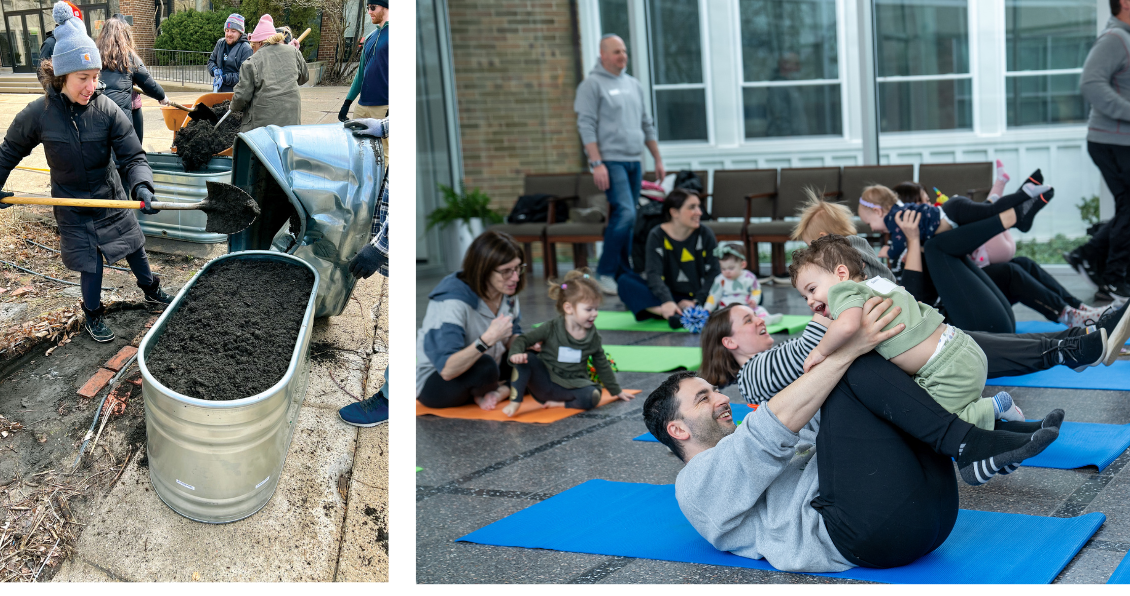
A Q&A with Lonnie Nasatir, President of Jewish United Fund

“JUF amplifies our collective strength to make the world a better place for everyone.”
What is JUF’s mission? How does financial support help JUF fulfill its mission?
JUF amplifies our community’s collective strength to make the world a better place for everyone. We mobilize the critical resources that bring food, refuge, health care, education, and emergency assistance to 500,000 Chicagoans of all faiths and millions of Jews around the world. This life-transforming work—including JUF’s unique ability to pivot to respond to crises that arise, such as the COVID pandemic—is made possible by our community’s generous corporate partners and donors.
What are some of the core services you provide?
JUF funds a network of nearly 70 local agencies and programs that care for people at every stage of life, regardless of the ability to pay. This assistance includes emergency financial assistance for people in crisis; food, help accessing affordable housing and medical care for people in need; job training and placement for people who are out of work; therapeutic school and specialized care for children with disabilities; support services for Holocaust survivors; transportation and other community-based services to allow seniors to live in their own homes; respite services for caregivers of people with disabilities; and mental health and wellness services for people of all ages, particularly teens and young adults.
Can you tell us about some of your most impactful
programs?
Before this school year began, JUF leadership met with the presidents of the five major universities in Illinois and asked that they adopt a zero-tolerance policy for antisemitism and codify prohibitions against protests targeting Jewish locations, student groups, and individuals. In September 2024, JUF reached a historic agreement with the University of Illinois at Urbana-Champaign addressing campus antisemitism—while helping the university settle the complaint filed against it with the US Office of Civil Rights, which had detailed a hostile environment for Jewish students. The settlements contain specific commitments to the safety and inclusion of Jewish students. Together, these two measures constitute the most sweeping campus protections for Jewish students in decades and are the most explicit commitments ever made by a major American university to Jewish college students.
What are some of JUF’s priorities for 2024?
Record levels of antisemitism have spread across the US threatening both the Jewish community’s safety and its mental health—so JUF is continuing to build its security capabilities to ensure that every member of our community can participate in Jewish life safely. In addition to making Jewish spaces safe for all, we are working to make civic spaces safe for Jews, accelerating our community’s civic engagement to fight the normalization of anti-Jewish hate. We also facilitate mental health and wellness services to provide young Jewish adults with emotional support and a sense of community.
Finally, with Israel engaged in the longest war it has fought since its War for Independence, JUF is working to help meet the nation’s intense mental health needs and to help repair its damaged economy.
What is something people might not know about JUF?
JUF/Jewish Federation administers the Refugee Social Service Consortium—which provides refugee social services throughout the State of Illinois—on behalf of the Illinois Department of Human Services. Having faced thousands of years of persecution and displacement, the Jewish people empathize with the plight of refugees fleeing persecution and peril in their native lands. That is why, for more than 40 years, JUF’s Refugee Resettlement Services department has played a key role in successfully welcoming over 130,000 refugees from a range of faiths and countries to Illinois. Since 1980, JUF has served as the administrator of the Illinois Refugee Social Services Consortium, made up of 10 partner agencies and funded by the federal government through the State of Illinois. Through our network of agencies, JUF provides food assistance—including meals, groceries, and grocery cards— to individuals in need. Last year, we provided food to 27,000 people in need. JUF also assists people in finding affordable housing—serving nearly 1,000 low-income individuals last year—and we provided affordable housing to 500 people.
How can someone get involved with JUF?
The Tikkun Olam Volunteer (TOV) Network is JUF’s connection point for people who want to donate their time to help others in need. In accordance with tikkun olam, the Jewish concept of repairing the world, TOV connects members of the Jewish community with rewarding volunteer opportunities that best meet their interests and needs.
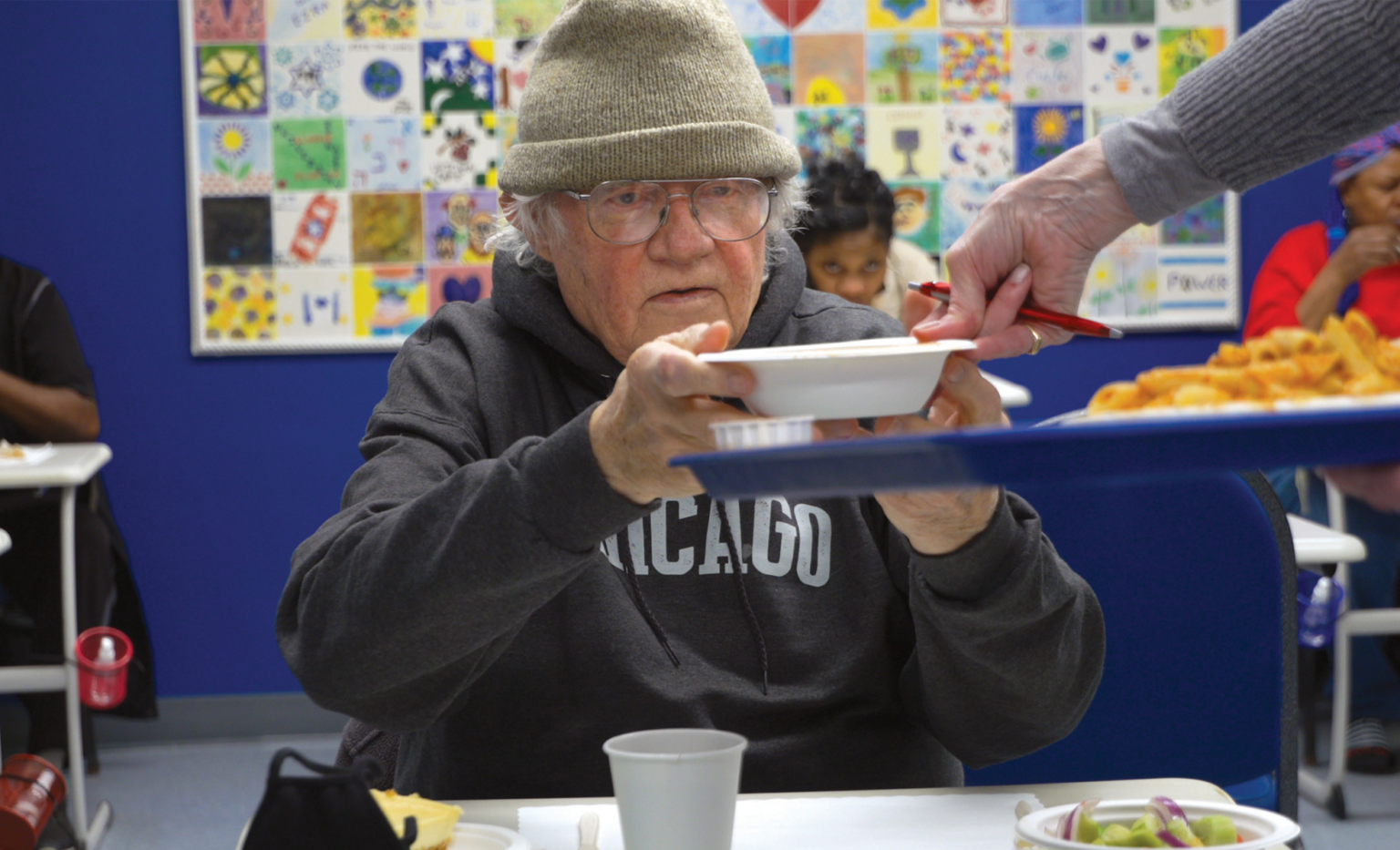
sense of community.
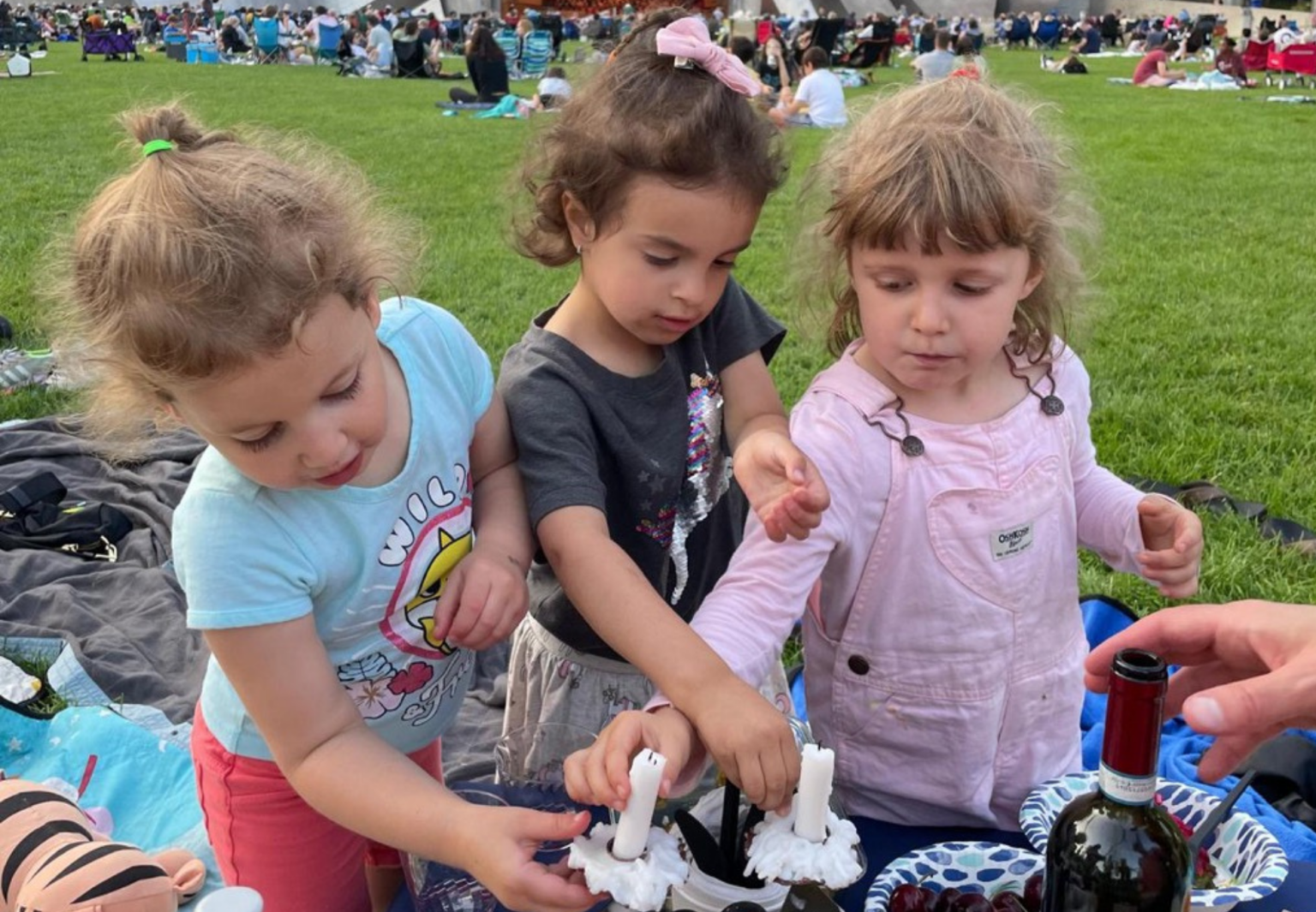
Photos and quotes for this story were provided by JUF.
Just the Facts
27,000
people in need of all faiths
received food assistance.
48,000
ndividuals received mental health
services through JUF agencies.
13,000
people received $19.2 million
in financial aid for necessities,
such as housing.
Get in Touch
If you would like to know more about JUF, please email tov@juf.org or click here.
Many LP team members provide pro bono legal services or are active volunteers with or serve on the boards of civic and charitable organizations.
3
Giving
LP’s team members support various causes through pro bono work, volunteering their time, and serving in leadership positions with charitable and civic organizations.
Levenfeld Pearlstein’s Day of Service and Pro Bono Program
LP helped a client obtain asylum protection via the firm’s robust pro bono program and hosted a comprehensive Day of Service in October.
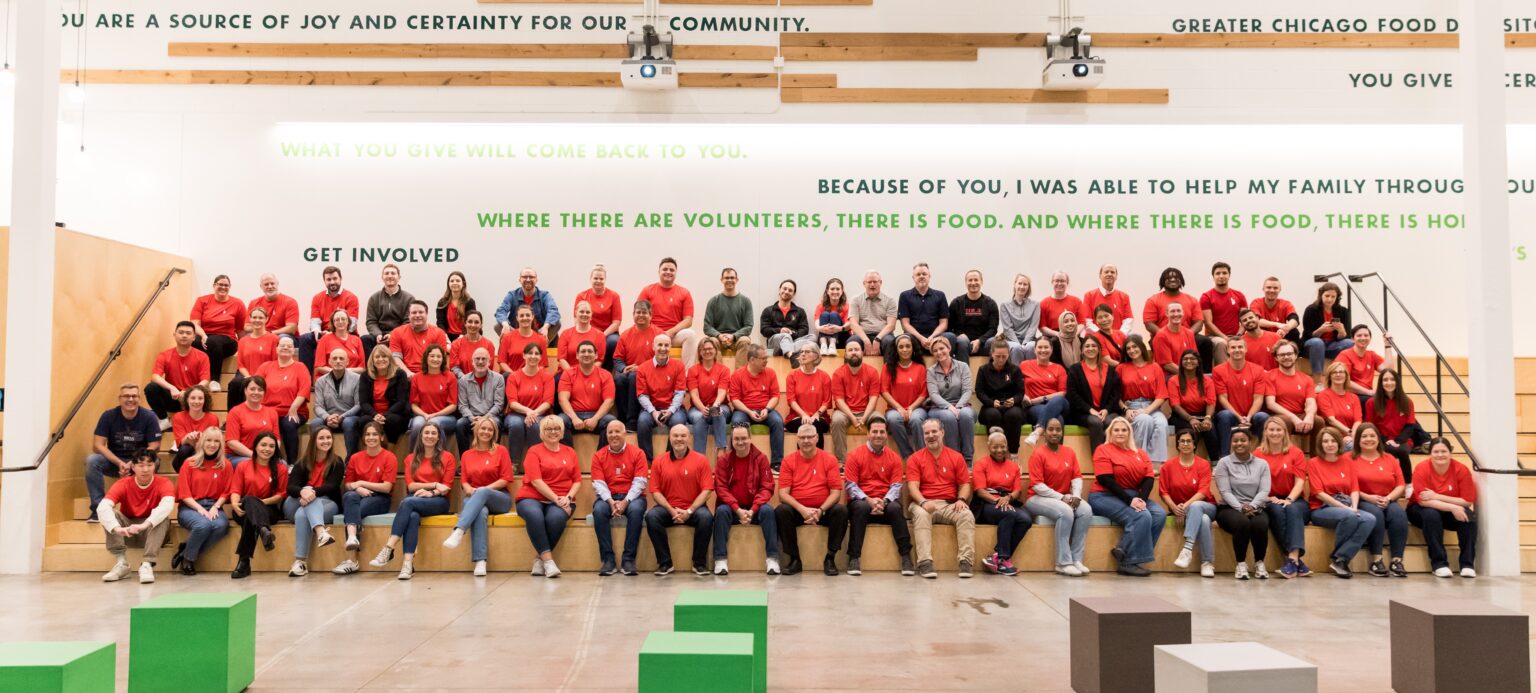
LP believes that a law firm has a complementary obligation to encourage its attorneys to engage regularly in pro bono activity. This is a part of who we are and is consistent with the LP Way. Many of our attorneys provide pro bono services to non-profit organizations in the community.
Our commitment to pro bono legal representation is centered on a desire to use our legal skills and experience in the legal system to help others.
Our pro bono work is rewarding and fulfilling – even more so when it yields exceptional and life-changing results for our clients. In July 2024, after seven long years, a team of LP attorneys led by Suzanne Karbarz Rovner successfully obtained asylum for a Syrian doctor who fled under persecution and credible fear of harm by the Syrian government in Syria’s civil war. The client worked tirelessly in New York as a medical doctor during the pandemic, having received several awards for his service and dedication to the health and welfare of his patients. Had asylum not been granted, the client would have been deported with a near certain death sentence upon arrival. Working with co-counsel, the National Immigrant Justice Center, and former congressional representatives and ambassadors, LP overcame extensive delays, repeated jurisdictional changes, and several interviews with the local U.S. Citizenship and Immigration Services (“USCIS”) office. LP is currently handling other asylum cases at various stages in the process.
Additionally, LP provides pro bono real estate services for Rebuild Foundation, an organization whose mission is to support artists of color in their lives and careers. Founded by prominent artist, sculptor, and spatial thinker Theaster Gates in 2010, Rebuild Foundation is a platform for art, cultural development, and neighborhood transformation, based on the South Side of Chicago.
To facilitate connection with each other and with our community partners, LP hosted a Day of Service in October 2024. In the afternoon, LP team members volunteered at the Greater Chicago Food Depository as part of our “LP Day of Service.” On October 9th, LP team members volunteered at the Greater Chicago Food Depository as part of our “LP Day of Service.” Together, LP repacked a total of 21,948 pounds of food, enabling the Food Depository to provide 18,290 meals. Volunteer repack sessions at the GCFD warehouse are essential to their daily impact in the community. Typical activities of a repack session include repacking fresh produce and bulk food for distribution, sorting and labeling products, and assembling boxes of assorted food.
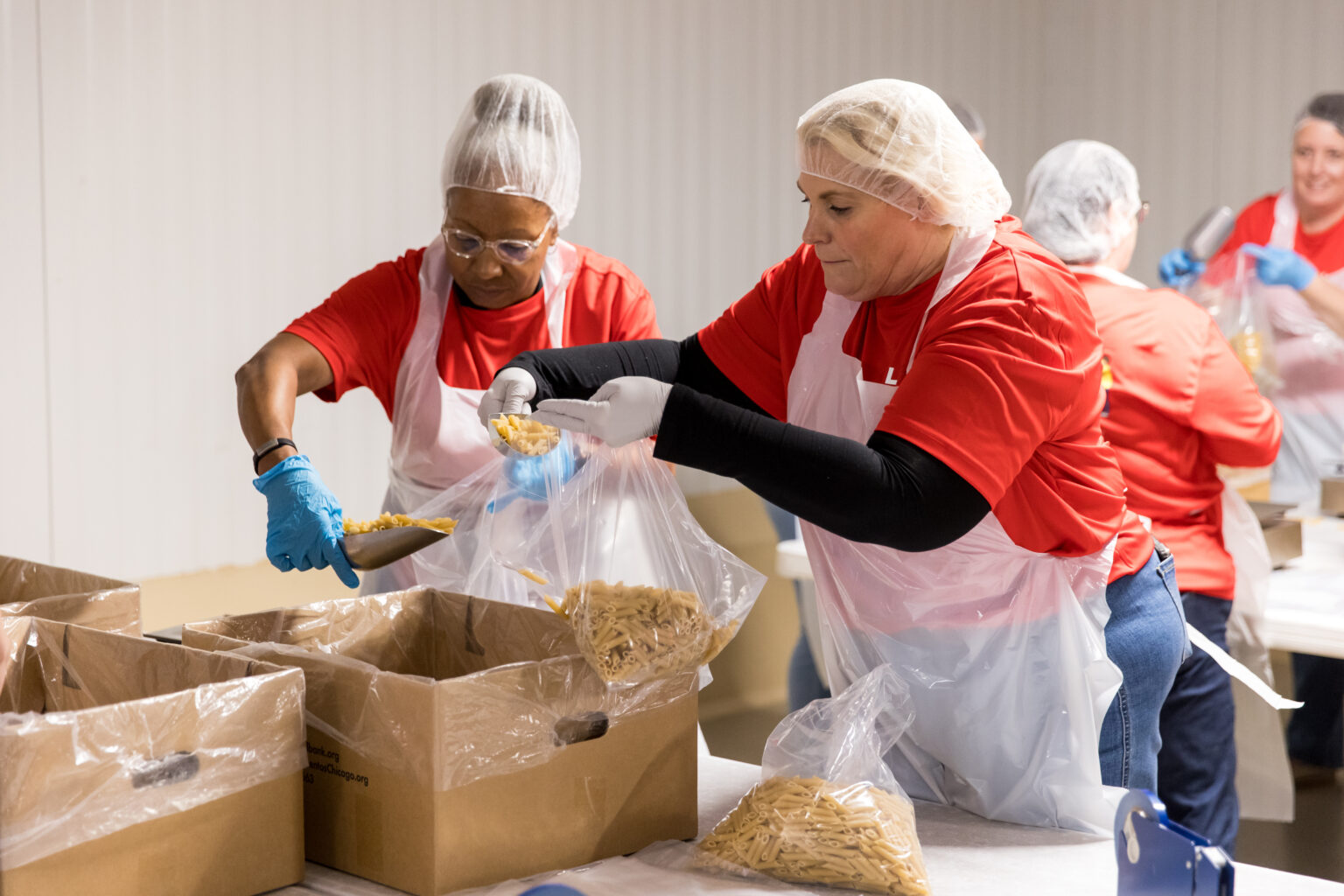
Civic And Charitable Support
Many organizations in the Chicagoland area are doing an immense amount of good. In addition to our grant partners, LP’s team members personally support several charities, non-profits, and civic organizations. These are the people who have gone above and beyond by holding leadership positions in or giving a substantial about of their time to those organizations.
A Giving Heart Foundation
Robert E. Connolly
Board Member
ACLU of Illinois
Laura B. Friedel
Board Member
Alzheimer’s Association Illinois Chapter
David B. Solomon
Board Member
American-Israel Chamber of Commerce (Chicago)
Tal Izraeli
Board Member
American Mission Hospital, Bahrain
Suzanne Shier
Board Member, Board Development Committee, Foundation Committees
Anti-Cruelty Society
Lauren J. Wolven
Board of Directors
Arthritis Foundation
Lauren J. Wolven
Active Volunteer
Bulletin of the Atomic Scientists
Robert LoPrete
Governing Board Member and Governance Committee
Chicago Scholars Foundation
Suzanne L. Shier
Board Member and Executive Committee
Credit Abuse Resistance Education (CARE), Chicago Chapter
Harold D. Israel
Board Member
Council For Jewish Elderly
Michael J. Tuchman
Volunteer, Adult Day Care Program
Stuart J. Kohn
Board Member
Design Industries Foundation Fighting AIDS
Susan Thomas
Board Member
District 113 Education Foundation
George J. Spathis
Executive Committee and Co-Chair of Vision & Strategic Planning
Eli and Bessie Cohen Camps of Massachusetts, Inc. and Eli and Bessie Cohen Camps
Etahn Cohen
Chair of Board of Directors, Various Committees
Evanston Children’s Choir
Susan Thomas
Board Member
Friends of the Chicago River
Elizabeth O’Brien
Board Member
Greater Chicago Food Depository
Elizabeth O’Brien
Awards Dinner Committee
Green City Market
Mitchell J. Weinstein
Vice Chair of Board of Directors, Chair of Governance Committee
Harold Eisenberg Foundation
Marc S. Joseph
Executive Board Member
Illinois Holocaust Museum and Education Center
Marc S. Joseph
Board of Directors, Executive Committee
Robert A. Romanoff
Board of Directors, Executive Committee
Israel Institute
Robert A. Romanoff
Board of Directors
Jewish Council for Youth Services
Benjamin M. Altshul
Board Member
Jewish United Fund
Marc S. Joseph
Facilities Board Member
Robert A. Romanoff
Board of Directors
Kids Hope USA
Suzanne L. Shier
Board Member and Board Officer
Leadership Advisory Council for Cristo Rey
Katie M. Haas
Board Member
Misericordia Heart of Mercy
Eileen M. Sethna
Women’s Board Member, Advisory Board Member
New Trier School Board Caucus
Laura B. Friedel
Chair of Board
Next Generation – United States Holocaust Museum
Jason B. Hirsh
Board Member
Reflectors Disability Ministry
Becky Jo Sewell
Active Volunteer
Rochelle Zell Jewish High School
Robert A. Romanoff
Board of Directors, Endowment Fund
Special Olympics of Illinois
Eileen M. Sethna
Board Member and Gala Committee Chair
Spertus Institute for Jewish Learning and Leadership
Harold D. Israel
Chair of the Board of Trustees
St. Raphael Catholic School
Heidi A. Kight
President of Home and
School, Room Parent and School Volunteer
The Mary Crane Center
Suzanne Karbarz Rovner
Board of Directors
Trillium Foundation
James D. Brusslan
Board Member
United States Tennis Association
Mary Ellen Hanrahan
Active Volunteer
University of Illinois Hillel
Harold D. Israel
Board of Governors, Chair of Governance Committee
Village of Deerfield Planning Commission
Blake E. Schulman
Commissioner
Village of La Grange Planning Commission
Jeffery D. Hoffenberg
Commissioner
A Closer Look at LP’s Partnership with City Year and Sky Cares
LP has worked with Michael Alter of the Alter Group for several years, including providing pro bono services to Alter’s non-profit organizations City Year and Sky Cares. In this Q&A, Valencia Koker, Senior Vice President and Executive Director for City Year Chicago, and Awvee Storey, Executive Director Sky Cares Foundation and Communitive Initiatives, share information about the two organizations.
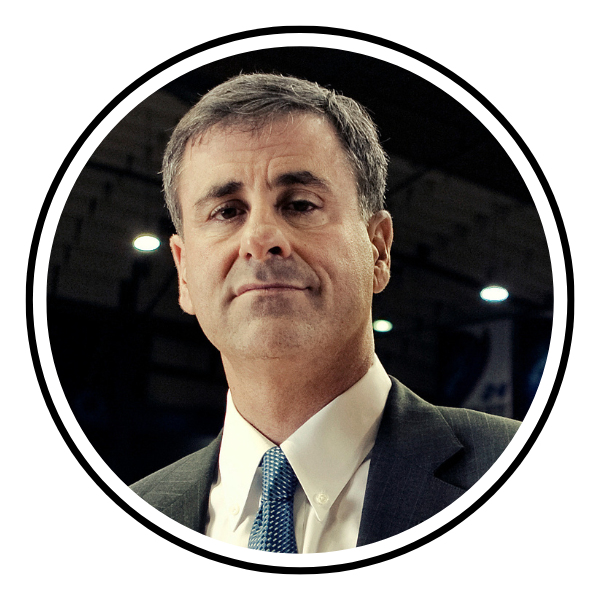

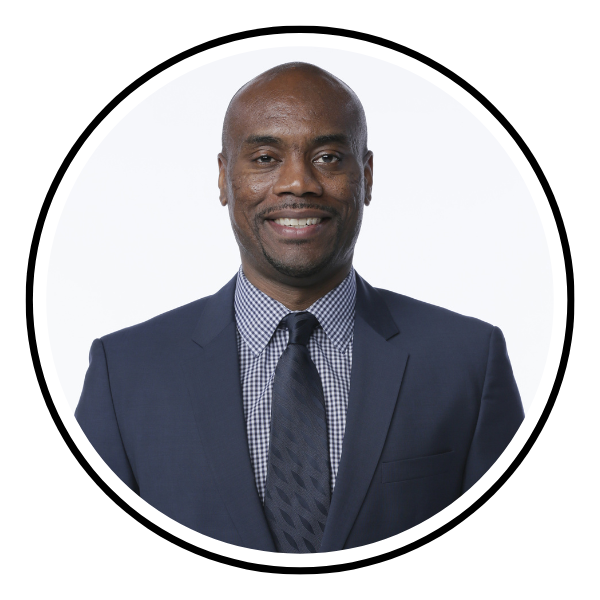
What are the primary goals of Sky Cares and City Year?
Both Sky Cares and City Year aim to empower and uplift youth but with slightly different approaches: Sky Cares
focuses on empowerment through sports, education, and wellness, while City Year provides hands-on academic
and social support within schools. Both share a vision of creating a stronger, more equitable Chicago for future
generations in underserved communities.
What is one thing someone might not know about the organizations?
Sky Cares leverages its partnership with Microsoft to bring STEM education directly to youth through the Chicago Sky Basketball Academy and other camps and clinics held throughout the year. By providing access to Microsoft tablets, Sky Cares introduces both girls and boys to technology and STEM concepts, helping them build skills and understanding in an interactive, hands-on way. This approach not only supports their academic growth but also integrates technology into sports, showing them how STEM can play a role in various aspects of life, including athletics.
Something lesser-known about City Year is their focus on the “near-peer” model with AmeriCorps members. Many of the members are close in age to the high school students they mentor, often recent college graduates. This proximity in age creates a unique bond, allowing students to see their mentors as relatable role models who have successfully navigated similar challenges. This connection can have a powerful impact on students’ motivation and engagement, offering them a vision of a possible future and encouragement from someone they can genuinely relate to.
What direct impact have you seen the organizations have on the community?
Both organizations address critical needs within the community, offering programs that support immediate needs
and foster long-term growth and resilience among youth in Chicago.
Youth Development through Sports:
Sky Cares’ basketball academy, camps, and clinics provide young people, especially young girls, with access to structured athletic and leadership development opportunities. Many participants have reported increased confidence, teamwork skills, and resilience, which extend beyond sports and into everyday life.
Improved Academic Performance:
With AmeriCorps members providing tutoring and mentorship, schools supported by City Year have seen improvements in academic performance and attendance. Students who receive support often achieve higher grades and show greater commitment to school, contributing to a reduction in dropout rates.
What do you find most rewarding about your work with the organizations?
That personal connection makes the impact so much more meaningful. Seeing young people overcome challenges
and build self-confidence, especially when they run up with excitement, is a clear sign of the positive influence the
programs are having on their lives. It’s rewarding not just to witness their growth but also to know your part of helping
them overcome barriers and believe in themselves. That real-time transformation is powerful.
How can people get involved with the organizations?
Volunteering at events and clinics
Attending fundraising events
Becoming a mentor or coach
Donating or sponsoring programs
What are the organizations’ goals for 2025? Among our goals are:
Enhancing training for AmeriCorps members
Growing the Chicago Sky Basketball Academy
throughout the Chicagoland area
Increasing access to STEM and financial literacy
programs
Promoting wellness and climate justice
Increasing AmeriCorps member presence in schools
Building partnerships to support educational equity
Is there anything else noteworthy or important you’d like to mention?
If you can continue to follow up on us next year,
we have even more exciting things to come.
For more information, visit skycares.org.
Click here to download a copy of this report.
